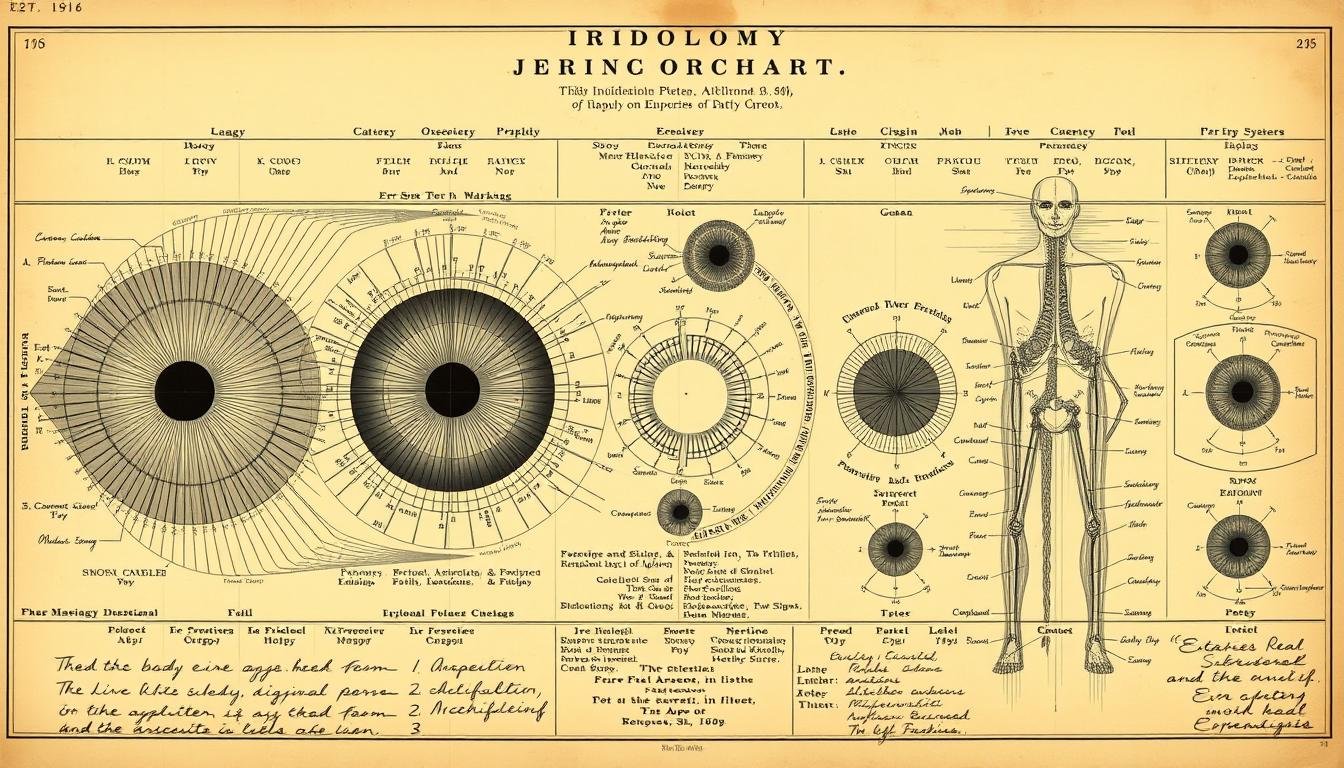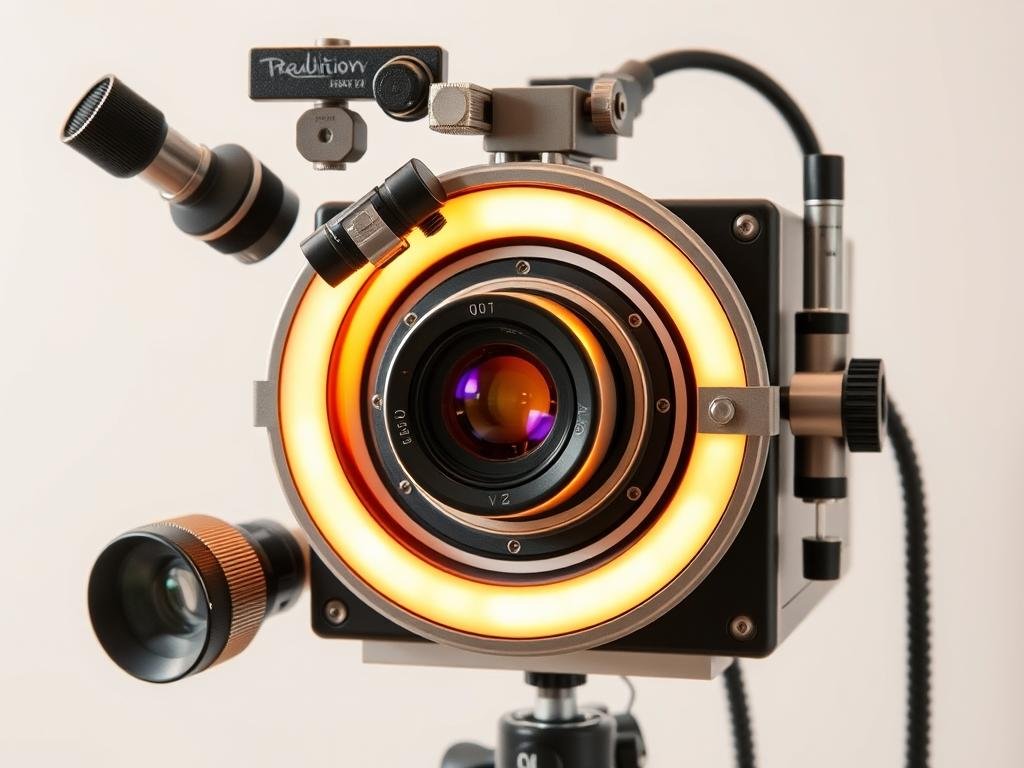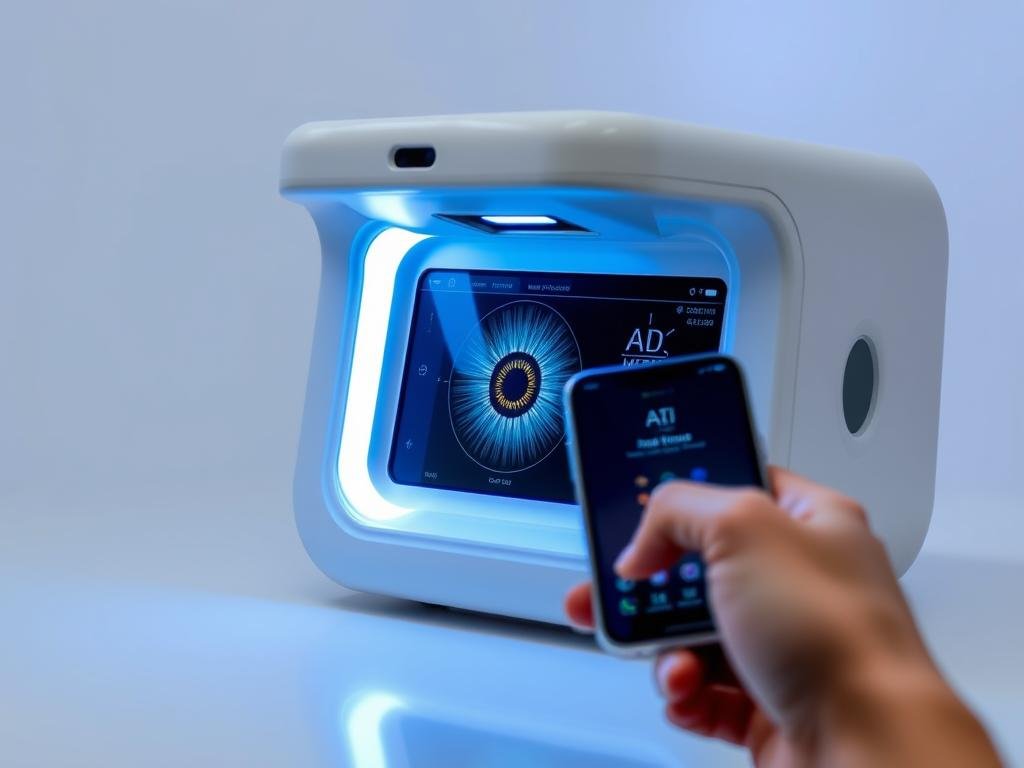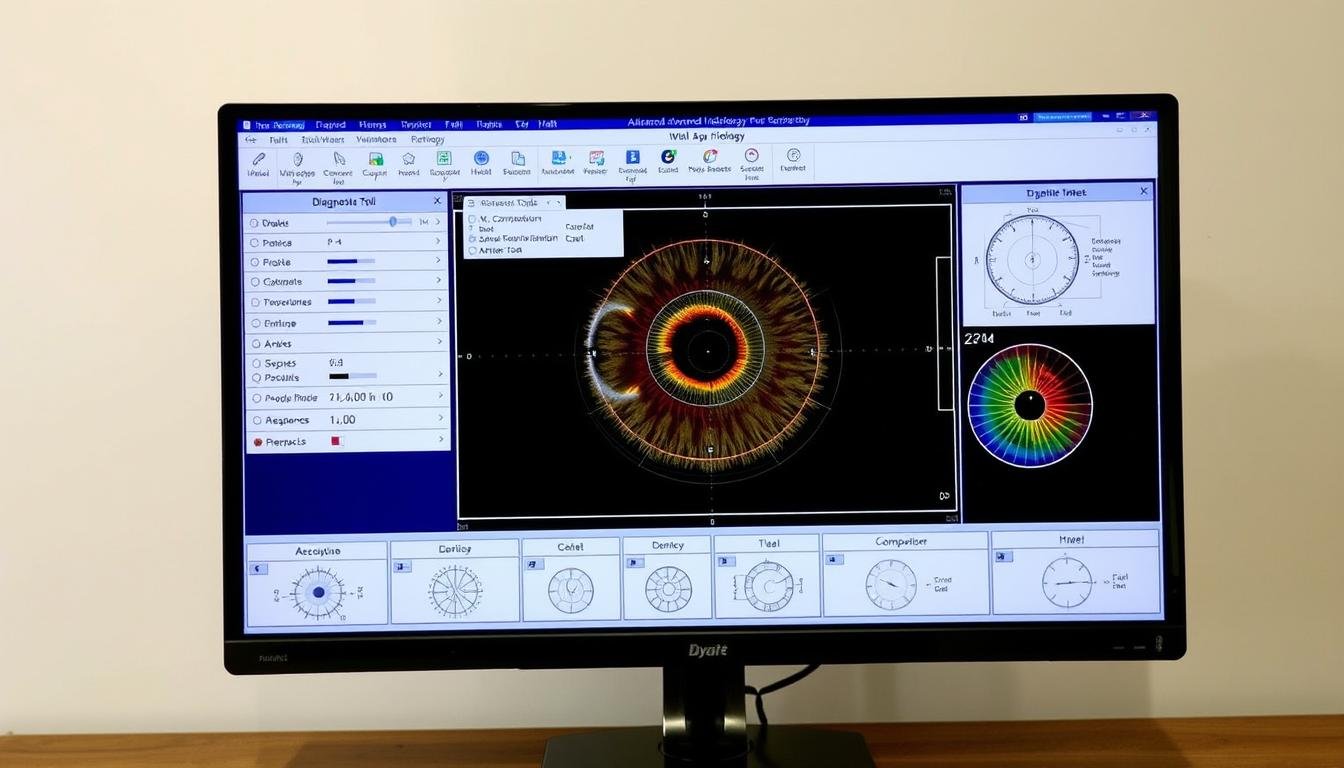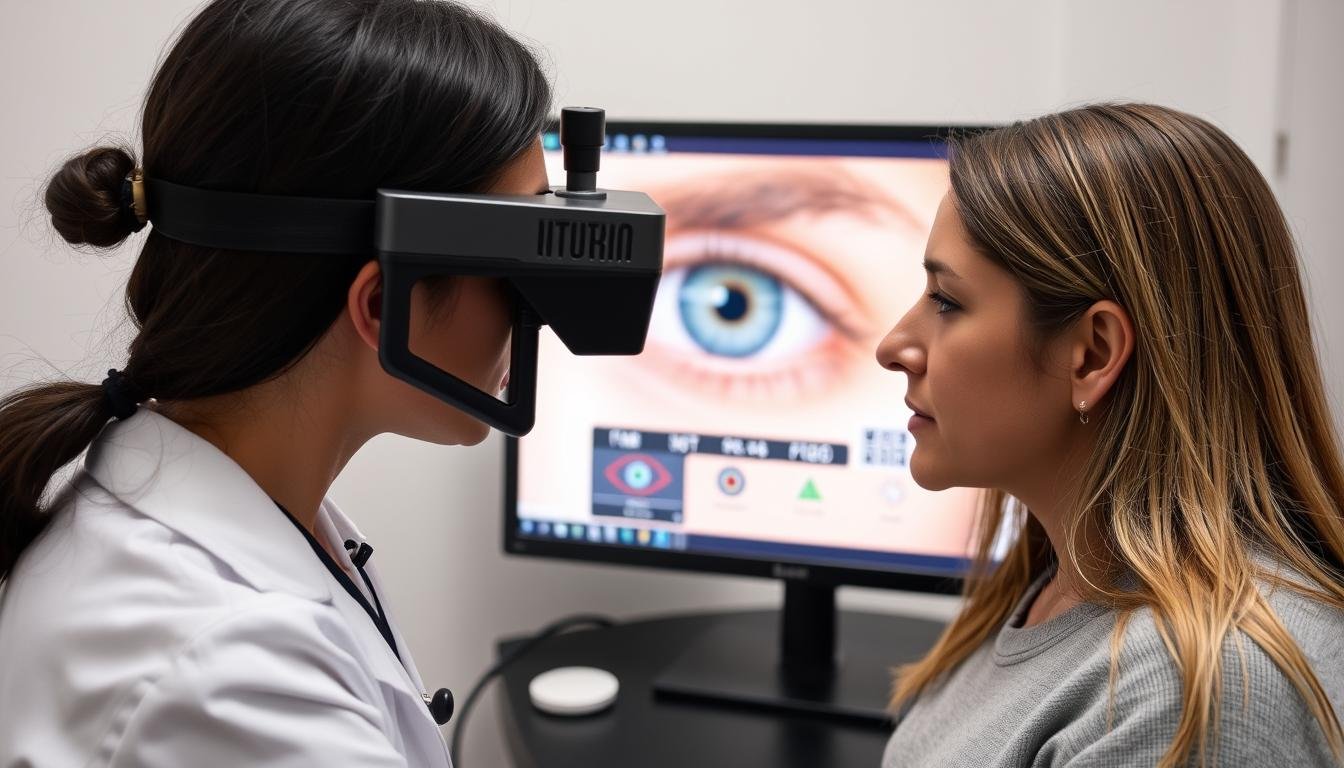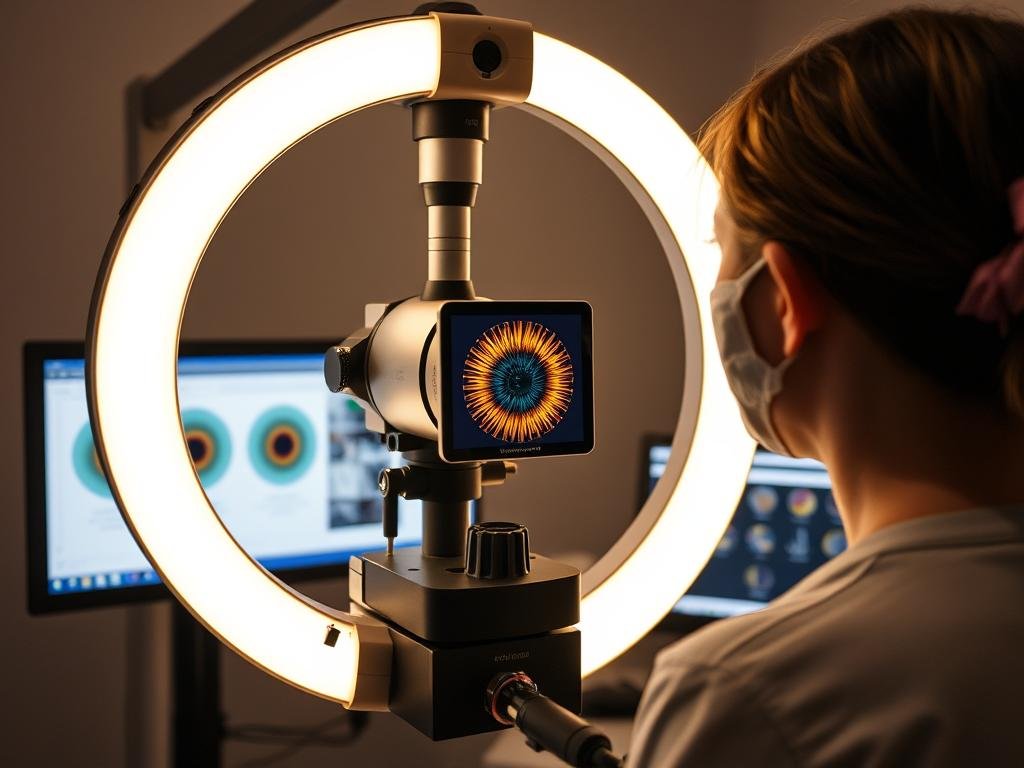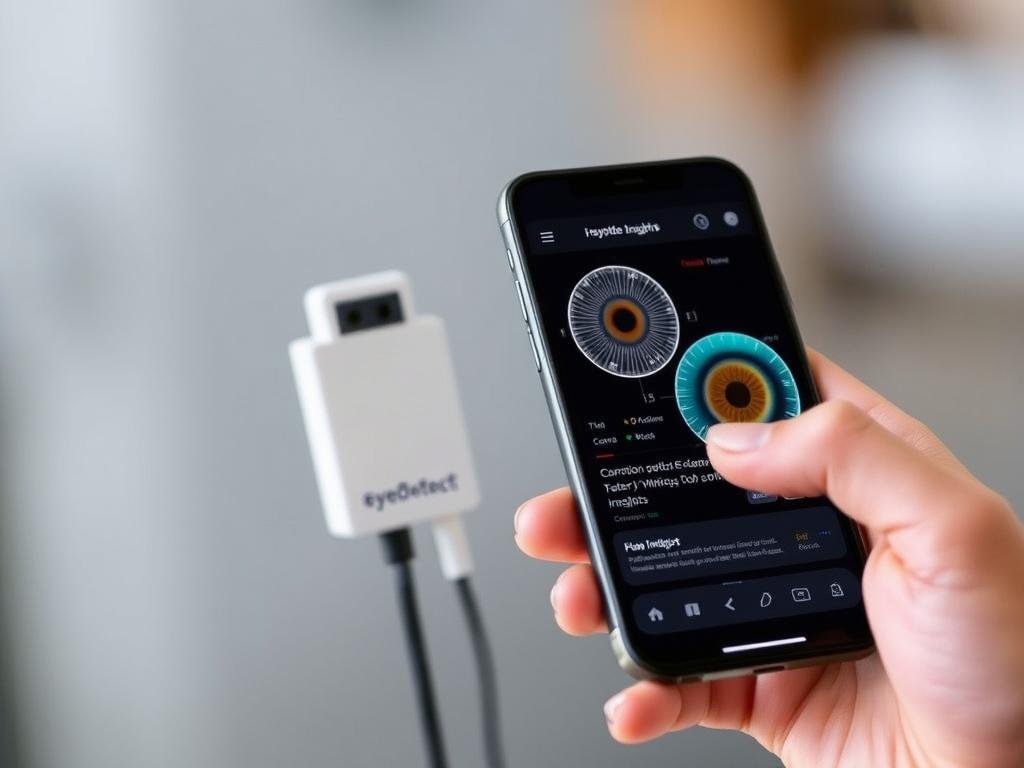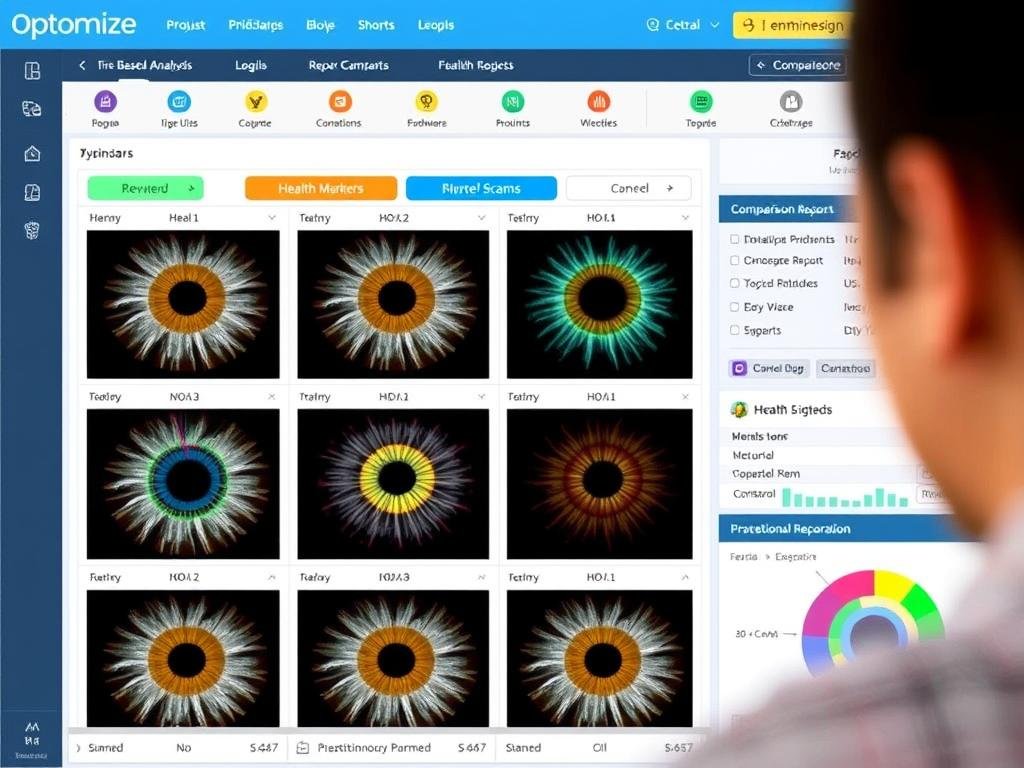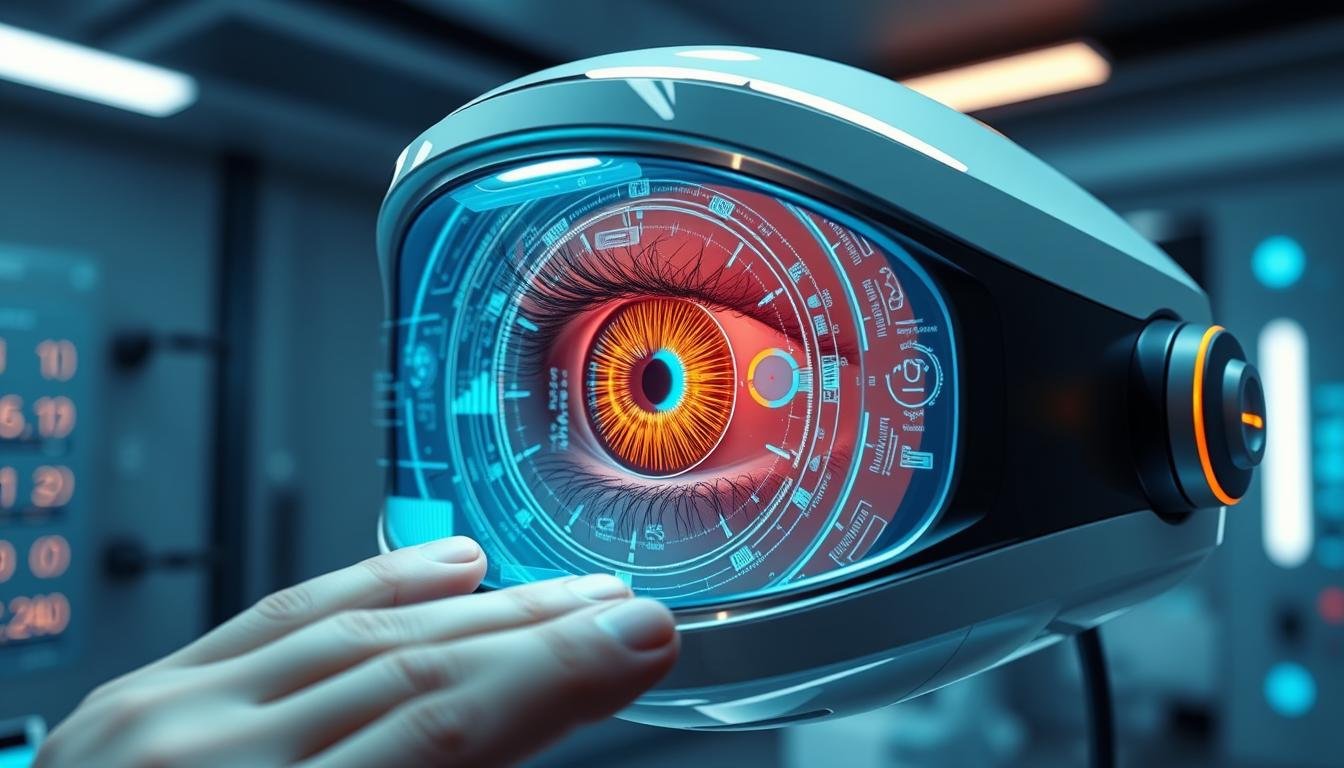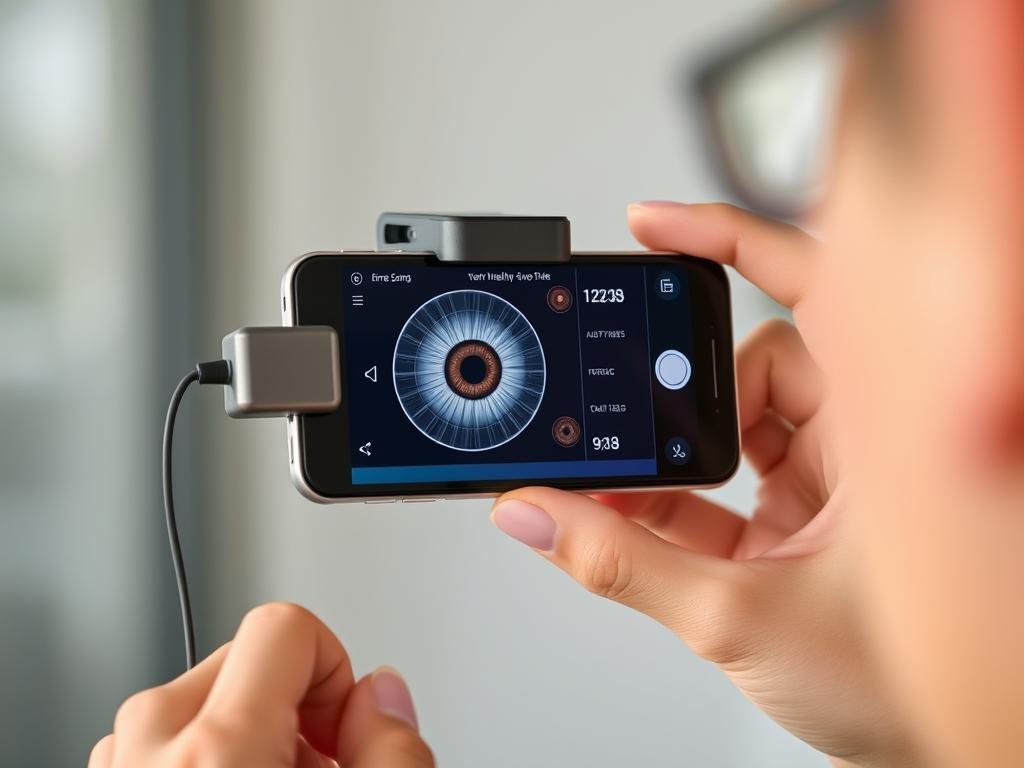The human eye has long been considered a window to our health. For centuries, practitioners have studied the intricate patterns, colors, and markings of the iris to gain insights into a person’s wellbeing. This practice, known as iridology, has evolved from simple magnifying glasses to sophisticated digital analysis systems powered by artificial intelligence. Today’s eye reading tools and technology bridge ancient wisdom with cutting-edge innovation, offering new possibilities for both healthcare professionals and wellness enthusiasts.In this comprehensive guide, we’ll explore the fascinating journey of eye reading technology—from traditional iridology cameras to advanced digital software—and examine how these tools are being used in various health and wellness applications. Whether you’re a healthcare practitioner looking to enhance your diagnostic capabilities or simply curious about what your eyes might reveal about your health, this article will illuminate the world of modern eye analysis.


The Historical Roots of Eye Reading Tools and Technology
Early iridology chart illustrating the connection between iris markings and body systems
The practice of analyzing the iris for health insights dates back to ancient civilizations. However, it wasn’t until the 19th century that iridology began to take shape as a formalized system. Hungarian physician Ignatz von Peczely is often credited with developing the first iridology chart in 1861, mapping correlations between specific iris markings and various organs and systems in the body.
Early practitioners relied on simple magnifying glasses and natural light to examine the iris. By the early 20th century, the first specialized tools for eye reading emerged—basic cameras with magnification capabilities that allowed practitioners to photograph the iris for more detailed study. These analog devices marked the beginning of technological advancement in the field of iridology.
As technology progressed through the 20th century, so did the tools available to iridologists. The introduction of specialized lighting, better optical lenses, and eventually digital photography in the 1990s revolutionized how practitioners could capture and analyze iris images. This technological evolution set the stage for today’s sophisticated eye reading systems.
The Evolution of Eye Reading Tools and Technology
Traditional Iridology Cameras
The first dedicated iridology cameras were essentially modified photography equipment with specialized lighting and magnification capabilities. These analog devices typically featured:
- Specialized ring lights to illuminate the iris without creating reflections
- Macro lenses for close-up photography
- Adjustable stands to maintain consistent distance and positioning
- Film-based image capture requiring development before analysis
Early digital iridology cameras emerged in the late 1990s, offering immediate image capture and basic digital storage. These transitional devices eliminated the need for film development but still required manual analysis by trained practitioners who would compare iris photographs to reference charts.
Modern Digital Iris Scanners
Today’s digital iris scanners represent a quantum leap in eye reading technology. These sophisticated devices combine high-resolution imaging with advanced software analysis, offering unprecedented detail and consistency. Modern features include:
- High-definition cameras with 20+ megapixel resolution
- LED illumination systems with specific light wavelengths
- Automatic focus and positioning guidance
- Smartphone compatibility for portable use
- Cloud storage for image archiving and comparison
- AI-powered analysis algorithms
Enhance Your Practice with Advanced Iris Analysis
Discover how modern digital iris scanners can transform your health assessment capabilities with precise, detailed iris imaging and analysis.
Explore Digital Iris Scanners
Software Advancements in Iridology
The software component of eye reading technology has evolved dramatically, transforming how iris images are analyzed and interpreted. Modern iridology software offers:
- Automated iris mapping and zone identification
- Pattern recognition algorithms to identify specific markings
- Comparison capabilities with previous scans to track changes
- Customizable analysis parameters for different assessment methodologies
- Integration with client management systems
- Report generation for practitioner and client use
Cloud-based platforms have further revolutionized the field, allowing practitioners to access sophisticated analysis tools without expensive hardware investments. These platforms often incorporate machine learning algorithms that continuously improve their analysis capabilities based on accumulated data.
Analog vs. Digital Eye Reading Tools and Technology: A Comparison
| Feature | Traditional Analog Tools | Modern Digital Systems |
| Image Resolution | Limited by film quality and lens capabilities | High-definition (20+ megapixels) with digital enhancement |
| Analysis Method | Manual comparison to charts by practitioner | Automated software analysis with AI assistance |
| Record Keeping | Physical photographs with manual notes | Digital storage with automated comparison capabilities |
| Consistency | Variable based on lighting and practitioner skill | Standardized imaging and analysis protocols |
| Cost | $500-2,000 for basic equipment | $2,000-10,000+ for advanced systems |
| Accessibility | Requires specialized training and equipment | More user-friendly with guided protocols |
| Integration | Standalone system | Can integrate with other health assessment tools |
Key Advantages of Digital Eye Reading Technology
Accuracy & Precision
Digital systems offer significantly higher resolution imaging and standardized analysis protocols, reducing the variability inherent in manual assessment. Advanced software can detect subtle patterns and changes that might be missed by the human eye.
Efficiency & Scalability
Automated analysis dramatically reduces the time required per assessment, allowing practitioners to serve more clients. Digital records enable easy tracking of changes over time and seamless sharing between practitioners when needed.
Data Management
Digital systems excel at organizing and retrieving client information, making it easier to track progress and identify patterns across multiple sessions. Cloud-based platforms ensure data is securely backed up and accessible from multiple locations.
Client Experience
Modern digital tools often include visual interfaces that allow clients to see and understand their iris analysis, increasing engagement and compliance with health recommendations. High-quality visuals and professional reports enhance credibility.
Real-World Applications of Eye Reading Tools and Technology
In Healthcare Settings
While conventional medicine doesn’t typically employ iridology as a primary diagnostic tool, some integrative healthcare practitioners use eye reading technology as part of their comprehensive assessment approach. Applications include:
- Complementary assessment alongside standard medical tests
- Monitoring of overall health patterns and tendencies
- Early identification of potential health concerns for further investigation
- Tracking response to treatment protocols over time
In Holistic and Alternative Medicine
Holistic practitioners often integrate eye reading technology into their practice as a non-invasive assessment tool. Common applications include:
- Constitutional assessment to guide personalized wellness plans
- Identification of potential genetic predispositions and tendencies
- Evaluation of systemic stress patterns and inflammatory responses
- Nutritional guidance based on identified patterns
- Monitoring of progress during natural healing protocols
Personal Wellness Applications
The accessibility of consumer-grade eye reading tools has expanded the use of this technology for personal wellness monitoring. Individuals are using these tools for:
- Self-directed health monitoring between professional visits
- Tracking the impact of lifestyle changes on overall health markers
- Educational exploration of their own health patterns
- Family health monitoring, especially for children and elderly relatives
Start Your Personal Eye Analysis Journey
Explore your own health patterns with consumer-friendly eye reading technology designed for home use.
Discover Home Eye Analysis Tools
Scientific Perspectives on Eye Reading Tools and Technology
Supporting Evidence
- The iris contains thousands of nerve endings connected to the brain and central nervous system
- Some studies show correlations between specific iris patterns and certain genetic conditions
- Technological advancements have improved the consistency and reliability of iris analysis
- Case studies document instances where iris changes preceded clinical symptoms
- Growing research interest in iris analysis for non-invasive health screening
Scientific Challenges
- Limited peer-reviewed research validating iridology as a diagnostic method
- Conventional medicine does not recognize iridology as an evidence-based practice
- Difficulty establishing consistent correlations between iris signs and specific conditions
- Potential for confirmation bias in interpretation of iris patterns
- Concerns about delayed conventional treatment if relying solely on iris analysis
The scientific community remains divided on the validity of iridology as a diagnostic tool. A 2015 systematic review published in the Journal of Alternative and Complementary Medicine found insufficient evidence to support iridology as a reliable diagnostic method. However, proponents argue that modern digital tools have significantly improved the precision and consistency of iris analysis, potentially addressing some of the methodological concerns raised in earlier studies.
“While the scientific validation of iridology remains a work in progress, the technological advancements in eye reading tools have undoubtedly improved the quality and consistency of iris analysis, opening new avenues for research and potential applications.”
Dr. Ellen Jensen, Integrative Health Researcher
It’s important to note that most practitioners who use eye reading technology today view it as a complementary assessment tool rather than a standalone diagnostic method. When used alongside conventional medical approaches, these tools may provide additional insights into overall health patterns and tendencies.
Leading Eye Reading Tools and Technology: Case Studies
Iridocam Pro
The Iridocam Pro represents the cutting edge of professional-grade iris imaging technology. This comprehensive system combines hardware and software components designed specifically for healthcare practitioners and serious iridology specialists.
Key Features:
- 24-megapixel camera with specialized macro lens
- Adjustable LED illumination system with multiple light wavelengths
- Automated positioning guidance for consistent imaging
- Proprietary analysis software with extensive reference database
- Client management system with secure cloud storage
- Comparison tools for tracking changes over time
EyeDetect
EyeDetect has revolutionized the accessibility of iris analysis with its portable, smartphone-compatible scanner. This consumer-friendly device brings professional-quality iris imaging to a broader audience, including health-conscious individuals and practitioners who need mobility.
Key Features:
- Compact iris scanner that connects to smartphones and tablets
- Specialized attachment lens with built-in illumination
- User-friendly mobile app with guided positioning
- Basic analysis capabilities with educational content
- Secure cloud storage with optional practitioner sharing
- Subscription-based advanced analysis features
Optomize
Optomize stands out as a leading cloud-based iridology software platform that works with images from various capture devices. This software-as-a-service solution offers sophisticated analysis capabilities without requiring investment in proprietary hardware.
Key Features:
- Compatible with images from most digital cameras and iris scanners
- Advanced AI-powered analysis algorithms
- Customizable analysis parameters for different methodologies
- Comprehensive client management system
- Detailed reporting with visual aids for client education
- Regular updates with expanding reference database
The Future of Eye Reading Tools and Technology
The field of eye reading technology continues to evolve rapidly, with several exciting developments on the horizon. Here are some of the key trends shaping the future of this technology:
AI and Machine Learning Integration
Artificial intelligence is revolutionizing iris analysis by identifying patterns and correlations that might not be apparent to human practitioners. Future systems will likely incorporate:
- Deep learning algorithms trained on vast databases of iris images
- Pattern recognition capabilities that improve with each analysis
- Predictive analytics to identify potential health trends before they manifest
- Personalized health insights based on individual iris characteristics
Telemedicine Applications
The integration of eye reading technology with telemedicine platforms is creating new possibilities for remote health assessment:
- Remote consultations with iris analysis specialists
- Home-based monitoring with professional oversight
- Integration with other telehealth assessment tools
- Expanded access to specialized analysis in underserved areas
Wearable and Smartphone Integration
Consumer technology is becoming increasingly capable of sophisticated iris analysis:
- Smartphone attachments with professional-grade imaging capabilities
- Wearable devices that periodically scan and monitor iris changes
- Integration with health tracking apps and personal wellness platforms
- Augmented reality interfaces for interactive health education
Research and Validation
As technology improves, so does the potential for scientific validation of iris analysis:
- Larger, more controlled studies using standardized digital imaging
- Cross-disciplinary research combining iridology with conventional diagnostics
- Development of evidence-based protocols for specific health applications
- Potential integration with precision medicine approaches
Conclusion: Navigating the World of Eye Reading Tools and Technology
The evolution of eye reading tools and technology represents a fascinating intersection of ancient wisdom and cutting-edge innovation. From simple magnifying glasses to AI-powered digital analysis systems, these tools continue to expand our understanding of what the eyes may reveal about our health.
While scientific debate about iridology continues, the technological advancements in this field have undeniably improved the quality, consistency, and accessibility of iris analysis. Whether used by healthcare practitioners as a complementary assessment tool or by individuals interested in exploring their own health patterns, modern eye reading technology offers new perspectives on holistic health monitoring.
As with any health-related technology, it’s important to approach eye reading tools with a balanced perspective—appreciating their potential benefits while understanding their limitations. When used as part of a comprehensive approach to health and wellness, these tools may provide valuable insights that complement conventional medical care.
Explore Eye Reading Technology For Your Practice
Discover how modern eye reading tools can enhance your health assessment capabilities and provide new insights for your clients.
Find Your Ideal Eye Reading Solution


